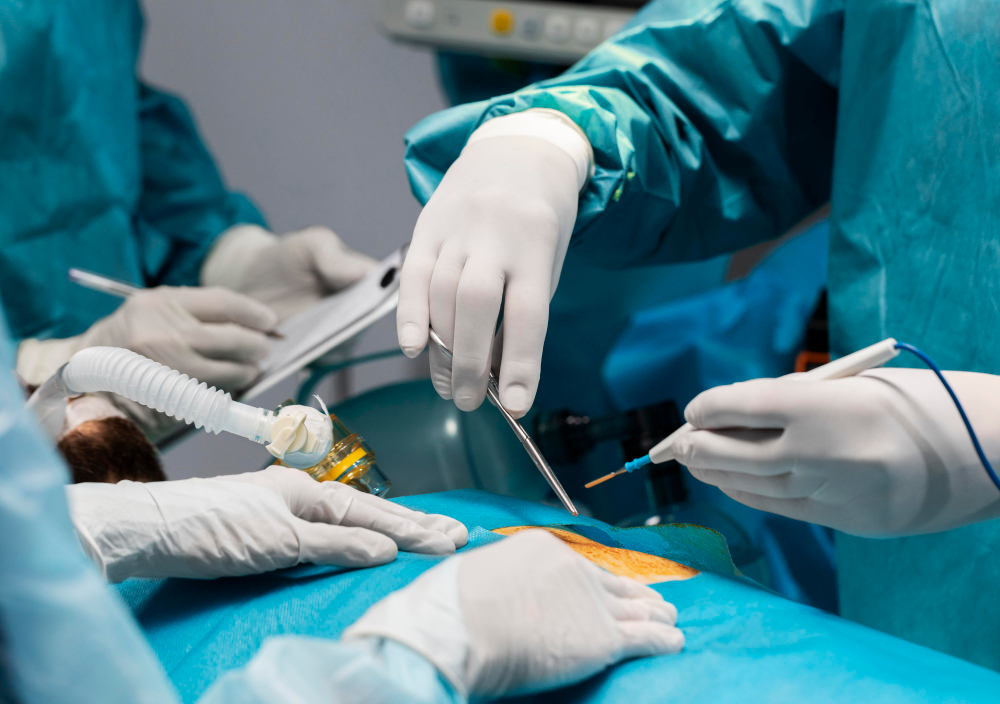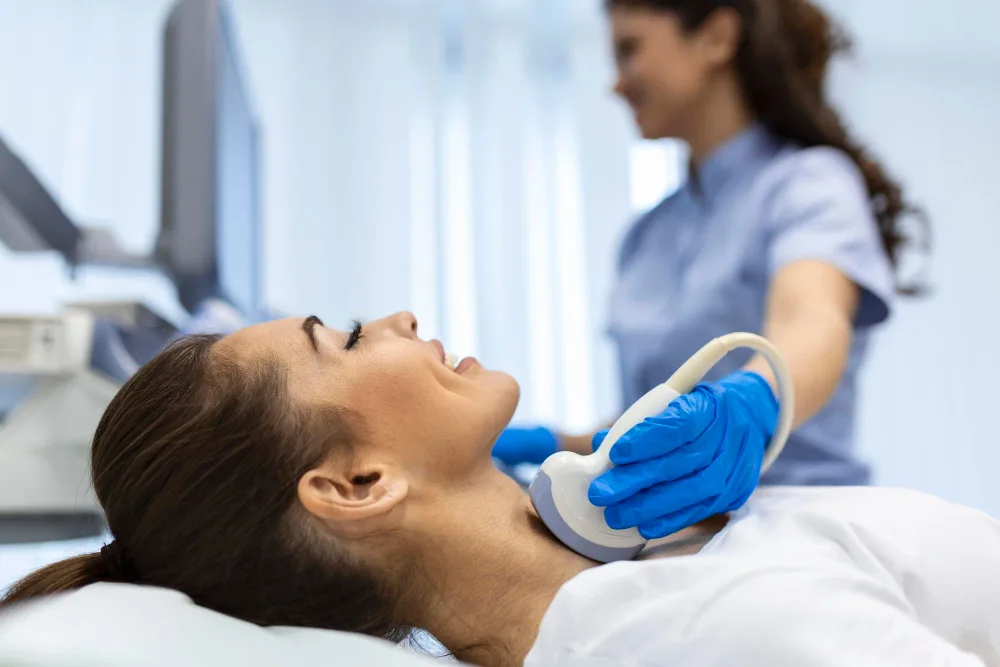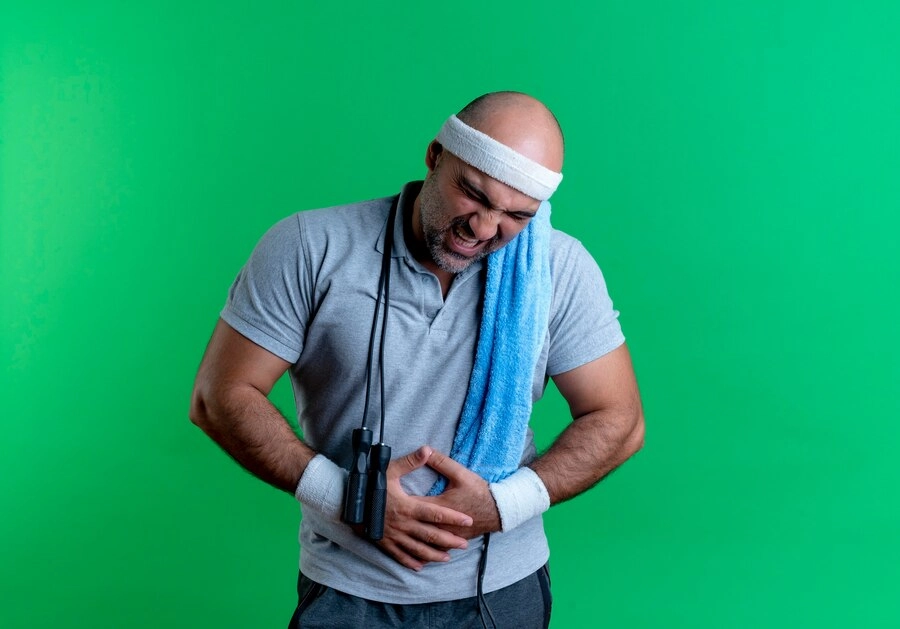What to Eat After Laparoscopic Surgery
Category: General Surgery
Diet plays a vital role in recovery after any surgery, especially laparoscopic surgery. Since the digestive system can be sensitive after anesthesia and abdominal procedures, eating the right foods can speed up healing, reduce discomfort, and prevent complications such as bloating or constipation. A well-planned diet ensures a smoother recovery.
At Lokmanya Hospital, patients undergoing laparoscopic gallbladder surgery, appendix laparoscopic surgery, ovarian cyst laparoscopic surgery, and other procedures receive detailed nutritional guidance. The hospital’s expert team combines medical care with dietary support, ensuring recovery is comfortable and holistic.
Why Diet Matters After Laparoscopic Surgery
After laparoscopic surgery, the body goes through a healing phase where energy levels may drop, digestion slows, and tissues need time to repair. While the procedure is minimally invasive, recovery still depends heavily on nutrition. Eating the right foods helps the body regain strength, prevents digestive discomfort, and lowers the risk of post-surgical complications. A mindful diet ensures that patients recover faster and return to their normal routine with fewer setbacks.
- Gentle on the Stomach
In the first few days after surgery, the digestive system is delicate and may not be able to process heavy meals. Choosing foods that are soft, light, and easy to digest—such as broths, khichdi, mashed vegetables, or porridge—helps reduce strain on the stomach. Avoiding oily, fried, or spicy meals during this stage ensures the gut gradually adapts without causing nausea, gas, or irritation.
- Faster Healing
The body requires extra protein to repair surgical wounds and restore muscle strength. A protein-rich diet that includes eggs, pulses, tofu, dairy products, and lean meats gives the body the building blocks needed for recovery. Adequate protein intake not only speeds up wound healing but also improves overall energy levels, helping patients regain strength more quickly.
- Reduced Discomfort
Constipation and bloating are common after laparoscopic surgery due to anesthesia and reduced physical movement. A balanced diet with fruits, vegetables, and whole grains provides natural fiber that keeps digestion smooth. Drinking plenty of water also helps prevent dehydration and eases bowel movements. By making these dietary adjustments, patients can minimize discomfort and avoid unnecessary strain during recovery.
- Immunity Boost
A strong immune system is crucial to prevent post-surgery infections and support wound healing. Foods rich in vitamins and minerals—such as citrus fruits, green leafy vegetables, nuts, and seeds—supply essential nutrients like Vitamin C, Vitamin A, Vitamin E, and zinc. These not only speed up tissue repair but also strengthen the body’s defenses, reducing the chances of complications during recovery.
Recommended Foods After Laparoscopic Surgery
A carefully planned diet can speed up recovery after laparoscopic surgery by providing essential nutrients and preventing digestive strain. The goal is to reintroduce food gradually, starting with liquids and moving to solid meals as the body heals.
- Clear Liquids (First 24 Hours)
In the immediate 24 hours after surgery, the body can best tolerate clear liquids like soups, broths, coconut water, and diluted juices. These help maintain hydration, restore electrolytes, and are gentle on the digestive system while it adjusts post-anesthesia.
- Soft Foods (Day 2–3)
As the stomach begins to settle, soft and easy-to-digest meals such as khichdi, porridge, oats, and boiled vegetables are ideal. These foods are light, reduce the risk of bloating, and provide enough energy for the body without overwhelming the digestive system.
- Protein-Rich Foods
Proteins play a vital role in repairing tissues and supporting recovery. Including eggs, lentils, lean chicken, tofu, and fish helps rebuild muscle strength, accelerates wound healing, and restores overall energy after surgery.
- High-Fiber Foods
Constipation is a common issue after laparoscopic surgery, so adding whole grains, green leafy vegetables, and fruits like papaya, apples, and pears can ease digestion. Fiber-rich foods regulate bowel movements and reduce abdominal discomfort.
- Hydration
Adequate fluid intake is essential for smooth recovery. Drinking water, clear soups, and herbal teas supports digestion, prevents dehydration, and helps the body flush out toxins, all of which speed up healing.
Foods to Avoid After Laparoscopic Surgery
Certain foods can interfere with healing or cause digestive discomfort, so it’s important to avoid them during the recovery phase. Steering clear of heavy, oily, or processed meals ensures the stomach is not put under unnecessary strain.
- Oily and Fried Foods
Fried snacks and greasy foods take longer to digest and may trigger acidity or bloating. Avoiding them helps reduce pressure on the digestive system and lowers the risk of post-surgery discomfort.
- Spicy Foods
Highly spiced curries, pickles, or chili-based meals can irritate the stomach lining and slow recovery. Keeping meals mild supports smoother digestion and prevents heartburn.
- Carbonated Beverages
Sodas and fizzy drinks can lead to gas buildup, bloating, and discomfort. These beverages also provide little nutritional value and should be replaced with water or fresh juices.
- Red Meat
Beef, mutton, and other red meats are harder to digest and can strain the recovering digestive system. Opting for lean protein sources is a safer choice during recovery.
- Processed Foods
Packaged snacks, instant noodles, and junk food lack nutrients and may delay healing. They often contain preservatives and excess salt, which can slow down the recovery process.
Tips for a Smooth Dietary Recovery
Small lifestyle and eating habits can improve post-surgery comfort.
- Eat small, frequent meals instead of large portions.
- Chew food properly to ease digestion.
- Avoid lying down immediately after eating.
- Include probiotics like yogurt for gut health.
- Follow the doctor’s diet instructions strictly.
Why Choose Lokmanya Hospital for Laparoscopic Surgery
At Lokmanya Hospital, patients benefit from a team of experienced laparoscopic surgeons and nutritionists who work together for holistic healing. Whether it’s fibroids laparoscopic surgery, laparoscopic hysterectomy surgery, or laparoscopic surgery for PCOS, the hospital ensures patients are guided on both treatment and recovery.
What sets Lokmanya apart is its patient-first approach. From pre-surgery preparation to post-surgery dietary counseling, the hospital ensures recovery is smooth, safe, and faster. With state-of-the-art infrastructure and personalized care, Lokmanya Hospital is a trusted name for laparoscopic surgery in Pune.
Conclusion
Diet after laparoscopic surgery is as important as the procedure itself. Eating light, nutritious, and easily digestible food accelerates healing and prevents discomfort, while avoiding heavy and processed foods supports smooth recovery.
At Lokmanya Hospital, patients not only get advanced surgical care but also complete post-operative guidance, including diet plans and lifestyle advice, ensuring the best possible outcomes.
FAQs
1.What to eat after laparoscopic gallbladder surgery?
Start with clear liquids and gradually move to soft, low-fat foods like boiled vegetables and porridge.
2. When can I eat normal food after laparoscopic surgery?
Most patients can return to a regular diet within 1–2 weeks, depending on the surgery and doctor’s advice.
3. Can I eat spicy food after laparoscopic surgery?
It’s best to avoid spicy food for at least 2–3 weeks to prevent irritation and digestive issues.
4. Is milk good after laparoscopic surgery?
Yes, low-fat milk and dairy are good sources of protein and calcium but should be consumed in moderation.
5. What to eat after appendix laparoscopic surgery?
Light meals such as soups, khichdi, and boiled vegetables are ideal before slowly reintroducing regular foods.
6. What to avoid after laparoscopic hysterectomy surgery?
Avoid red meat, fried foods, processed snacks, and carbonated drinks to aid smooth recovery.
7. Can I eat fruits after laparoscopic surgery?
Yes, soft fruits like bananas, papaya, and apples are easy to digest and prevent constipation.
8. Why is diet important after laparoscopic surgery?
The right diet aids healing, prevents digestive discomfort, and strengthens immunity during recovery.
Previous blog

Why is Laparoscopic Surgery Done?
Next blog






